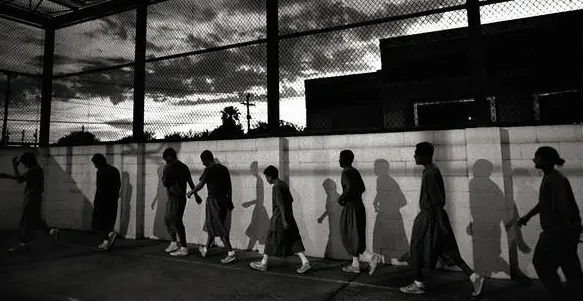Reviewing LWOP Sentences of Those Age 25 and Younger
Report discusses development factors for younger offenders in sentencing

Two in five people sentenced to LWOP (Life Without Parole) between 1995 and 2017 were under 26 at the time of their sentence. In Michigan, Pennsylvania, and California, nearly half of those sentenced to LWOP were younger than 26. Nationally, the peak age at conviction was age 23, which is well within the period between youth and adulthood.
Further, two thirds (66%) of people under 26 years old sentenced to LWOP are Black compared with 51% of persons sentenced to LWOP beyond this age, indicating that being Black and young has produced a substantially larger share of LWOP sentences than being Black alone. This fact reinforces the growing understanding that extreme sentences disproportionately impact Black Americans.
Beginning at age 18, U.S. laws typically require persons charged with a crime to have their case heard in criminal rather than juvenile court, where penalties are more severe. The justification for this is that people are essentially adults by age 18, yet this conceptualization of adulthood is flawed and ignores an important, distinct phase of human development referred to as emerging adulthood, also known as late adolescence or young adulthood. Compelling evidence shows that most adolescents are not fully matured into adulthood until their mid-twenties.
A newly released report from the Sentencing Project recommends that sentences that forbid judicial review should never be imposed on individuals who have not yet reached adulthood. Life sentences with no option for parole review should be struck down entirely for emerging adults and should be limited to a maximum of 15 years. The Sentencing Project joins several national organizations in calling for special consideration of persons whose crime occurred before reaching adulthood.
You can read and download this report, titled "Left to Die in Prison: Emerging Adults 25 and Younger Sentenced to Life without Parole" from the Sentencing Project.










